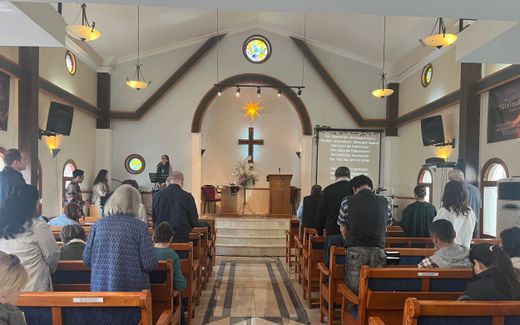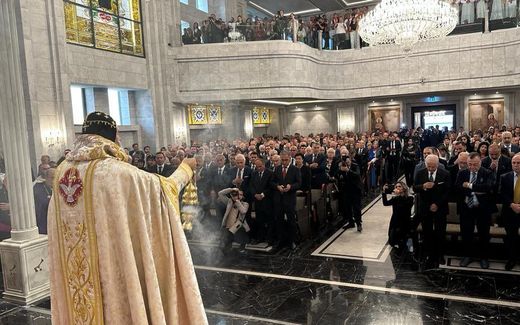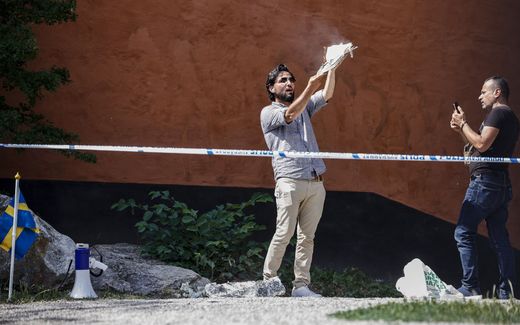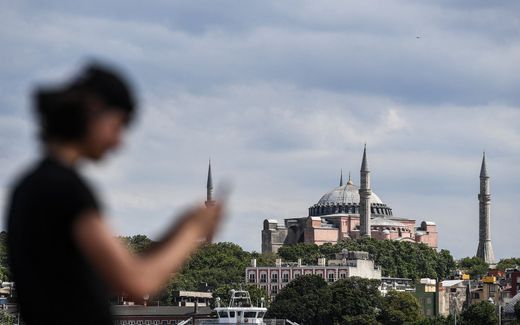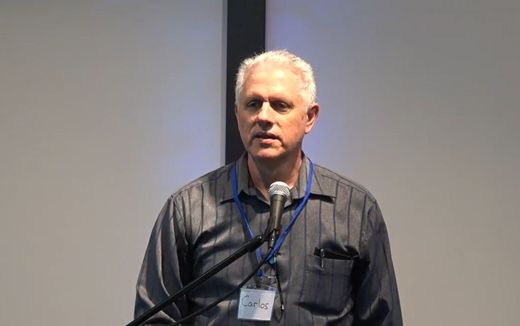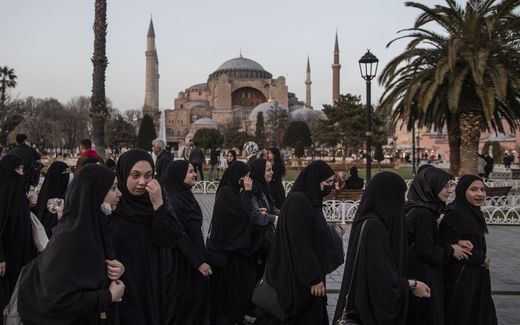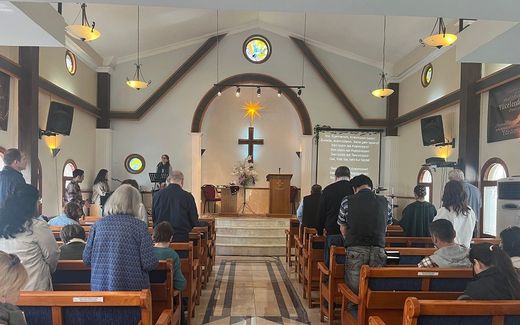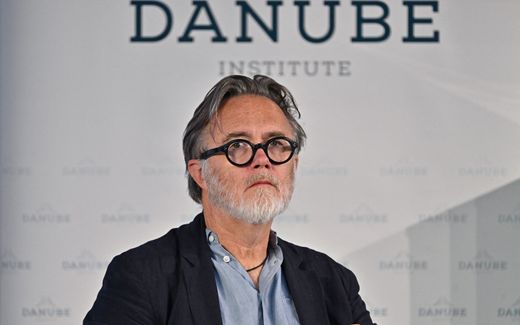It seems that Turkey is distancing itself from Christian Westerners
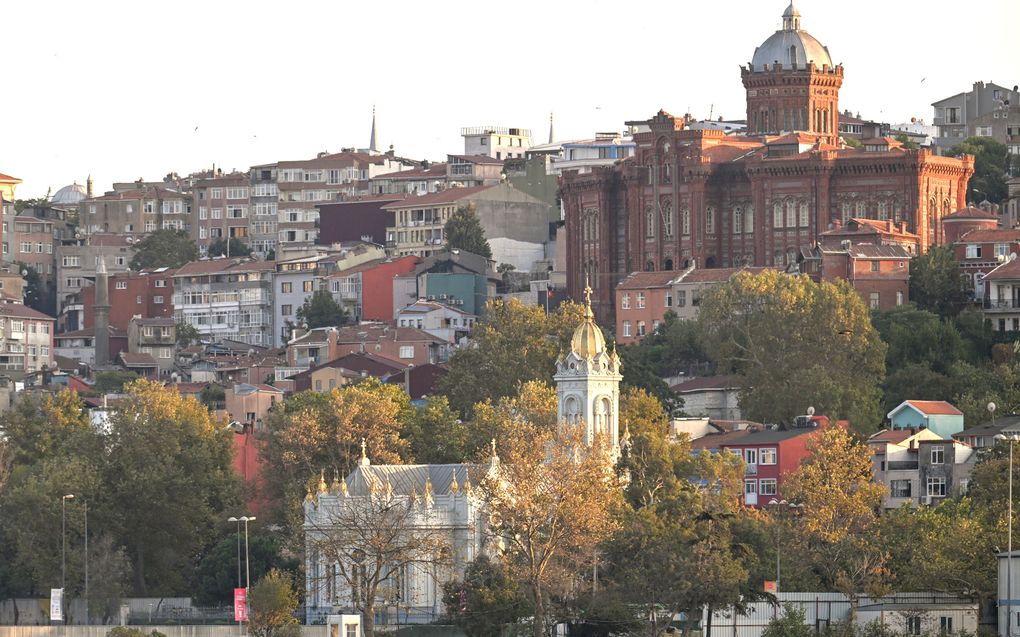
Istanbul has churches – but not too many. Photo APF, Ozan Kose
Southern Europe
Turkey is no longer a comfortable country for Christians. More and more Christian leaders are expelled from there. The reason may be the government’s frustration about its relationship with the West. But pastor David Byle says there might be another reason.
Stay up to date with Christian news in Europe? Sign up for CNE's newsletter.
Christians in Turkey suffered an upsurge in hate crimes in 2024 compared to the previous year, according to a human rights report. The Association of Protestant Churches’ 2024 Human Rights Violation Report noted several hate crimes despite Turkey’s official protections of religious freedom.
“Protestant Christian individuals or institutions experienced hate crimes or associated physical attacks due solely to their faith”, noted the report. “2024 saw an increase from the previous year in both written and oral hate speech aimed at provoking hate in public opinion, both written and verbal, that was directed at Protestant Christian individuals or institutions.”
Officially, Turkey is a secular state with a Constitution enshrining freedom of religion and conscience (Article 24). The government acknowledges on paper that missionary activities and proselytisation do not threaten the nation’s national security.
However, in reality, Turkey is a country with a largely Sunni Muslim population of 85 million people who believe in a religious nationalism that increasingly leads to severe restrictions on religious freedom for religious minorities.
The number of Christian workers who have been expelled or banned from the country within the past few years is especially alarming. Since 2020, about 200 foreign Christian workers have been expelled or banned from re-entering Turkey.
Most of these Christian workers had attended religious conferences. These measures have affected between 400 and 500 people, including family members.
The Ministry of Interior, in collaboration with Turkish Intelligence, assigned these workers’ immigration codes N-82 or G-87, which means that these workers are regarded as threats to national security. The expulsions of the Christian workers leave many Christian (Protestant) communities without spiritual leadership.
One of those leaders is David Byle (born), a Canadian American who, together with his German wife Ulrike, has been working as a missionary in Turkey for almost twenty years. Byle’s ministry began as a street evangelist, sharing the Gospel across Istanbul. Later, he worked with Operation Mobilisation.
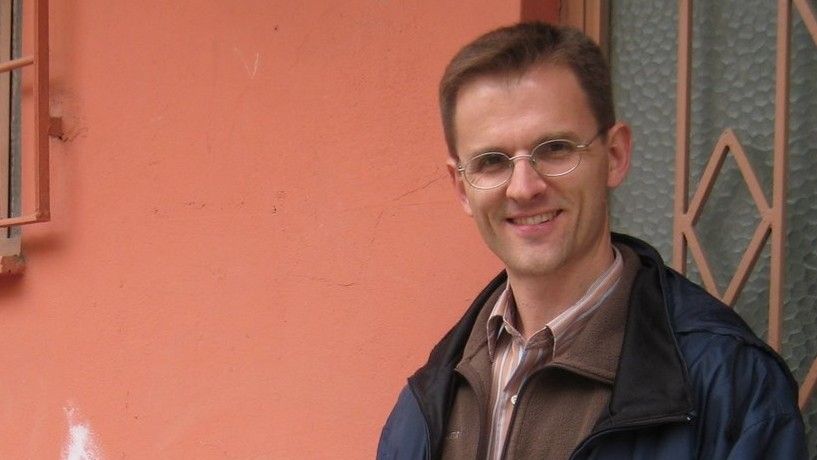
Since 2007, he has noticed growing harassment as the police became sceptical of this public display of Christianity. Byle was forced to leave the country he had called his home for 19 years, where he had raised his children and became a close-knit community member – simply because he shared his faith.
Even though the Turkish government marked foreign missionaries as threats to national security, Byle believes that the reasons for the expulsion of Christians are not only political. “The Turkish government is frustrated and disappointed about its relationship with the West and about not being accepted into the European Union. But on a spiritual level, the government is taking these measures because it couldn’t help but notice the growing interest in the Gospel among the population. Whenever we spoke in public, people were excited to listen and learn. For a long time, we were successfully able to fight the government’s attempts to stop our ministry, because we were only making use of our right to religious freedom, protected by the Turkish constitution. The government did not want us in Turkey, but plenty of people do. God called us there. He wants the Turkish people to hear about Him and to know that He is doing wonderful things.”
Byle faced an unjust deportation decision in 2016 and challenged the legality of the move in court. Though he was granted an injunction that allowed him to stay until the results of the case were delivered, Byle unexpectedly faced another arrest – only one day after the high-profile release of American pastor Andrew Brunson from custody in Turkey in October 2018.
Despite having a guarantee of protection to remain, he was given a new order to leave the country within fifteen days. The authorities alleged Byle was a threat to public order and security despite his successfully challenging previous charges brought against him. After leaving the country, the authorities imposed a permanent re-entry ban, which he only discovered upon trying to return to his family, with whom he now resides in Germany.
Another Christian leader persecuted by the Turkish government is Carlos Madrigal. Carlos (born 1960) is from Barcelona and belongs to the Spanish Evangelical Alliance. However, he has lived in Turkey for 36 years, working for the Foundation of Protestant Churches Protestan Kiliseleri Vakfi.
Carlos tells CNE that he has dedicated decades to serving Turkey’s Evangelical community. “Together with my wife, I founded the Protestant Church of Istanbul in the mid-1990s. We built a chapel in a central part of the city at the end of that decade, and in 2006, obtained official recognition as a church building. That was very special, because it was granted for the first time in the republic’s history.
Over the years, we have been involved in various areas of ministry: helping establish around twenty churches, providing Bible training, producing Christian media, and publishing about twenty Christian books in Turkish. In 2001, I received an official work permit as a Protestant clergyman for our church community in Turkey. I served there until January 2022, when I was forced to leave the country.”
The change came in November 2019, when Carlos travelled to Central America. “At the passport control in Istanbul Airport, the officer looked suspiciously at me. He wrote some letters on my boarding pass and escorted me to the visa office in the terminal. There, the passport officer asked about the meaning of the “N-82 code” on the screen. A plainclothes officer reassured him that everything was fine and that I could continue my journey. However, I already knew what the code meant from similar cases, so I decided not to leave the country, since my work-related residency was still valid until January 2022. The visa officer simply told me, “Do whatever you want.”
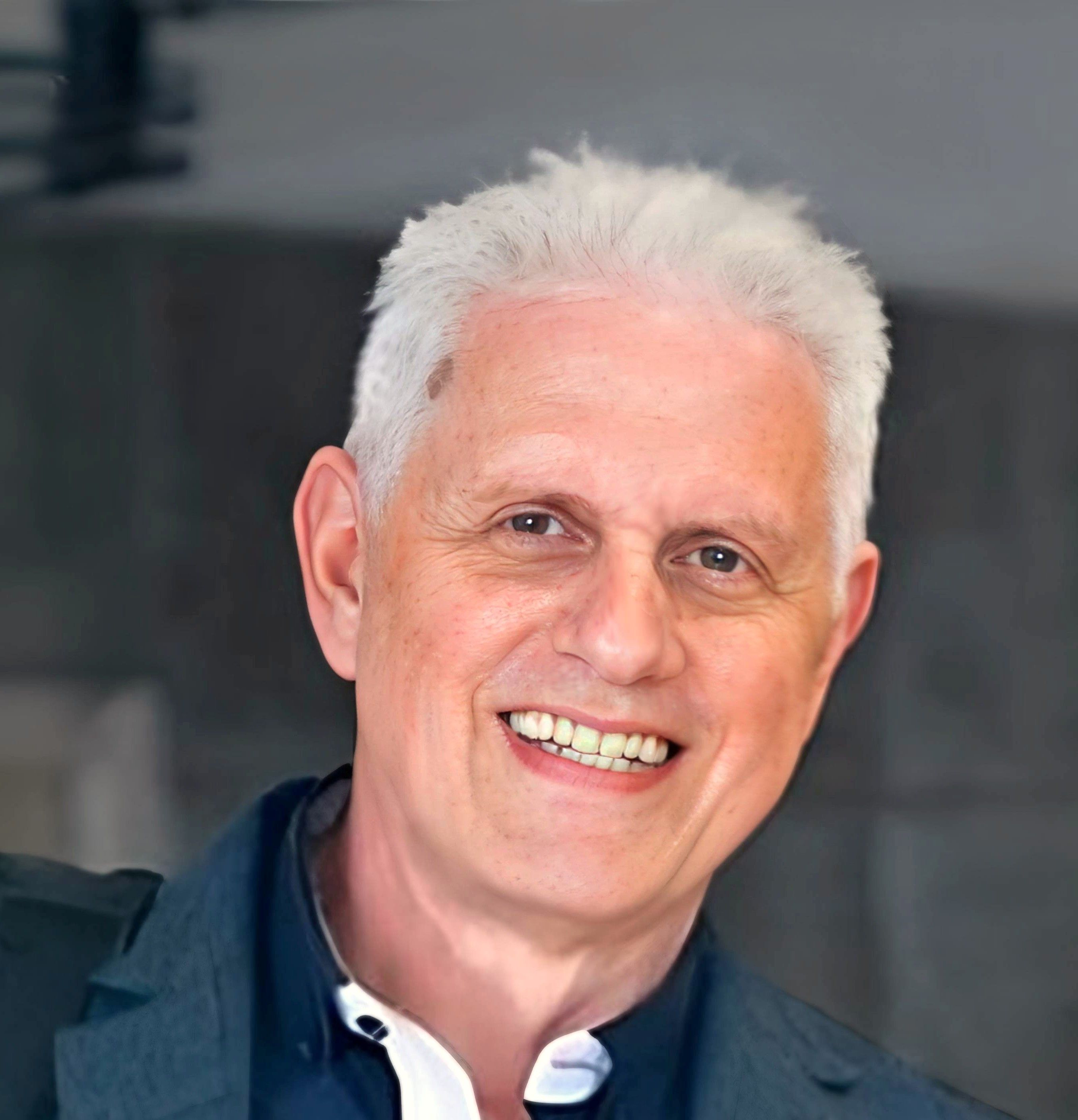
I immediately filed a lawsuit to remove the code from my dossier, but I kept losing in court. I even tried reaching out to President Tayyip Erdogan, but without success, even though he had personally congratulated us years earlier on the anniversary of our church.
Our church, which is officially registered in Turkey as a religious foundation, applied to renew my work permit, which was due to expire in December 2021, and successfully obtained an extension until 2025. But 15 days later, I received a notice from the Ministry of the Interior revoking my work permit and giving me ten days to leave the country.”
Carlos says he still loves Turkey and its people and desires to spend the rest of his life there. “However, because of a false accusation, I am barred from returning—even as a tourist—to the places that have shaped most of my life.
I had to bid a tearful farewell on my last visits to places like Ephesus and Izmir and during my final two Sunday services at our church in Istanbul. I have been forced to leave behind an extended “family” of friends, neighbours, and brothers and sisters in the faith, from whom this unjust punishment has painfully separated me.
Still, we continue to pray for the good of Turkey and its leaders, just as the Apostle Paul urges us to do in 1 Timothy 2:1-3.”
What, according to Carlos, is behind the Turkish government’s decision to expel Christian workers? “This “administrative” decision by the Turkish authorities is based on a confidential Turkish intelligence file that labels us as a “threat”, but not even our lawyers are allowed to see the file, not even in the context of a criminal case. This leaves us completely defenceless against such an accusation. An accusation, by the way, that has no basis in any criminal record in any Turkish court (as our lawyers have confirmed) for any of the individuals involved.”
The real reason behind these “expulsions”, according to Carlos, is that Christian ministers are viewed as a political arm against the government, an allegation entirely without foundation. The workers carry out their duties as clergy in Turkish society, even when showing full respect for other sensibilities.
“Despite the dozens of lawsuits filed by some of those expelled to challenge this administrative decision, all have been dismissed, even by the Turkish Constitutional Court. About a dozen cases (including mine) are pending before the European Court of Human Rights in Strasbourg.”
Does Carlos expect a change for the better or for the worse? “Our trust is in the Lord, Who has both the power and the grace to bring about justice. At the same time, like Paul, we have “appealed to Caesar” in pursuit of justice. At the same time, the Turkish authorities currently show no intention of correcting this injustice, which affects not only foreigners like me, but also Turkish citizens married to foreigners who have received the “code” and have been forced to leave the country. In some recent cases, however, Turks married to foreigners have appealed to the courts before leaving the country and have won their cases. Given this situation, it is difficult to expect a positive change from the Turkish authorities in our case.”
Byle agrees that the situation in Turkey will only change when a more pro-Western government is installed, “and that will not be soon.”
Democracy and the rule of law are in danger in Turkey. A delegation of European mayors recently visited the country to protest against the arrest of the Istanbul mayor, Ekrem Imamoglu, who is a severe critic of the Erdogan regime and, for that reason, was arrested in March of this year.
The mayors, as representatives of the political culture of the European Union, proved very worried about the state of democracy and the rule of law in Istanbul. And it has been a long time since we last heard about EU membership negotiations between Turkey and Europe.
Related Articles


